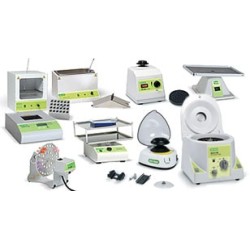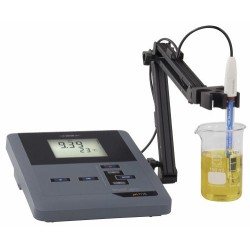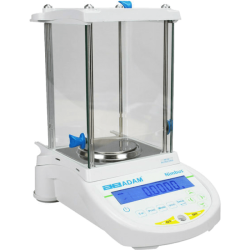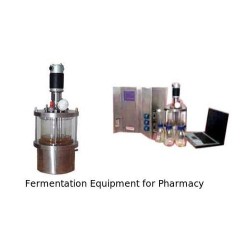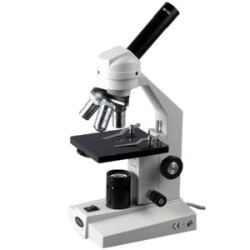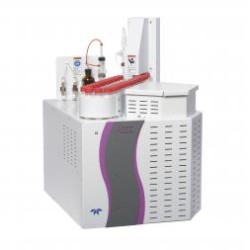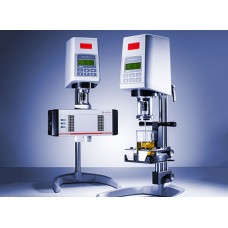Rotational Rheometer:
RheolabQC
- Cost-effective modular rotational rheometer for routine tasks
- From single-point to more complex rheological analyses from liquids to semi-solids
- Controlled shear rate and shear stress, yield and thixotropic tests
- Worry-free use with automatic spindle recognition (Toolmaster™)
RheolabQC is a rotational rheometer based on state-of-the-art technologies also used in R&D rheometers. It combines unrivaled performance with easy operation and robust design. From quick single-point checks over flow curve and yield point determinations to complex rheological investigations: RheolabQC sets new standards for carrying out routine rheological tests. This powerful rheometer is an excellent example of a modern measuring instrument utilizing all available technical possibilities to ensure flexible, reliable and simple operation.
Key Features
Viscosity measurement – From single point up to complex rheological tests
The RheolabQC rotational rheometer measures the dynamic viscosity of low-viscosity up to semi-solid samples. Besides single-point determinations, flow curves and viscosity curves can be performed to study the sample’s rheological behavior: Simply evaluate with RheolabQC whether your sample is ideally viscous (Newtonian), shear-thinning (pseudoplastic) or even shear-thickening (dilatant). Yield point determinations, thixotropy, and temperature tests provide important insight into the sample’s behavior. Users can choose between controlled shear rate (CSR) and controlled shear stress (CSS) settings. Very fast speed and torque changes (within ms) are possible thanks to the powerful, highly dynamic EC motor drive.
Quick and accurate temperature control
A Peltier temperature device (temperature range: 0 °C to 180 °C) is available for RheolabQC. The Peltier system features fast heating rates (8 K/min) and cooling rates (4 K/min), and excellent temperature accuracy. It does not require any additional fluid thermostat since counter-cooling is simply done with air.
Ease of operation for single-point viscosity determinations as well as more sophisticated rheological tests
RheolabQC can be operated in standalone mode or software-controlled. A data export software is included free of charge with the instrument. It allows you to transfer the measurement data from the instrument to a PC. Toolmaster™, the patented system for automatic recognition of measuring systems, ensures error-free operation. The QuickConnect coupling allows fast and easy mounting and changing of measuring systems without the use of a screwing mechanism.
A wide range of applications covered by only one rotational rheometer
The wide speed and torque range allows for measuring a huge variety of samples with only one instrument. From paints, coatings, and food samples like chocolate or dairy products to petrochemicals like motor oil or even asphalt – RheolabQC makes the measurement of any kind of low-viscosity up to semi-solid samples quick and easy. For customers in the pharmaceutical industry a pharma qualification package which is 21 CFR Part 11 compliant is available.
A broad variety of measuring systems and accessories for a multitude of applications
In order to cover many different applications, a wide range of measuring systems and accessories are available for RheolabQC:
- Concentric cylinder measuring systems (according to DIN EN ISO 3219 and DIN 53019):
For viscous liquids up to viscoelastic liquids (from low-viscosity samples up to semi-solid samples like creams)
- Double-gap measuring system (according to DIN 54453):
For samples with a low viscosity (<100 mPa.s)
- Vane geometries and spindles:
For samples that contain particles (>0.1 mm) or tend to sedimentate (like dispersions)
- Krebs spindles (According to ASTM D562):
Especially for our customers in the paint, building, and mining industries who measure viscosity in Krebs units
- Flexible cup holder:
To directly immerse a measuring bob into a sample container, for example an aluminum can (paints, coatings) or a 500 mL beaker
- Ball measuring system:
For samples with larger particles such as building materials (cement, concrete, plaster, or food products like yogurt or jam with fruit bits)
Technical specifications :
| Property | Range |
|---|---|
| Speed | 0.01 1/min to 1200 1/min |
| Torque | 0.20 mNm to 75 mNm |
| Shear stress | 0.5 Pa to 3 x 104 Pa |
| Shear rate | 10-2 1/s to 6500 1/s |
| Viscosity range (depending on the measuring system) | 1 mPas to 109 mPas |
| Temperature range | -20 °C to 180 °C |
| Angular resolution | 2 µrad |
| Physical variables (measurement or evaluation) |
|




